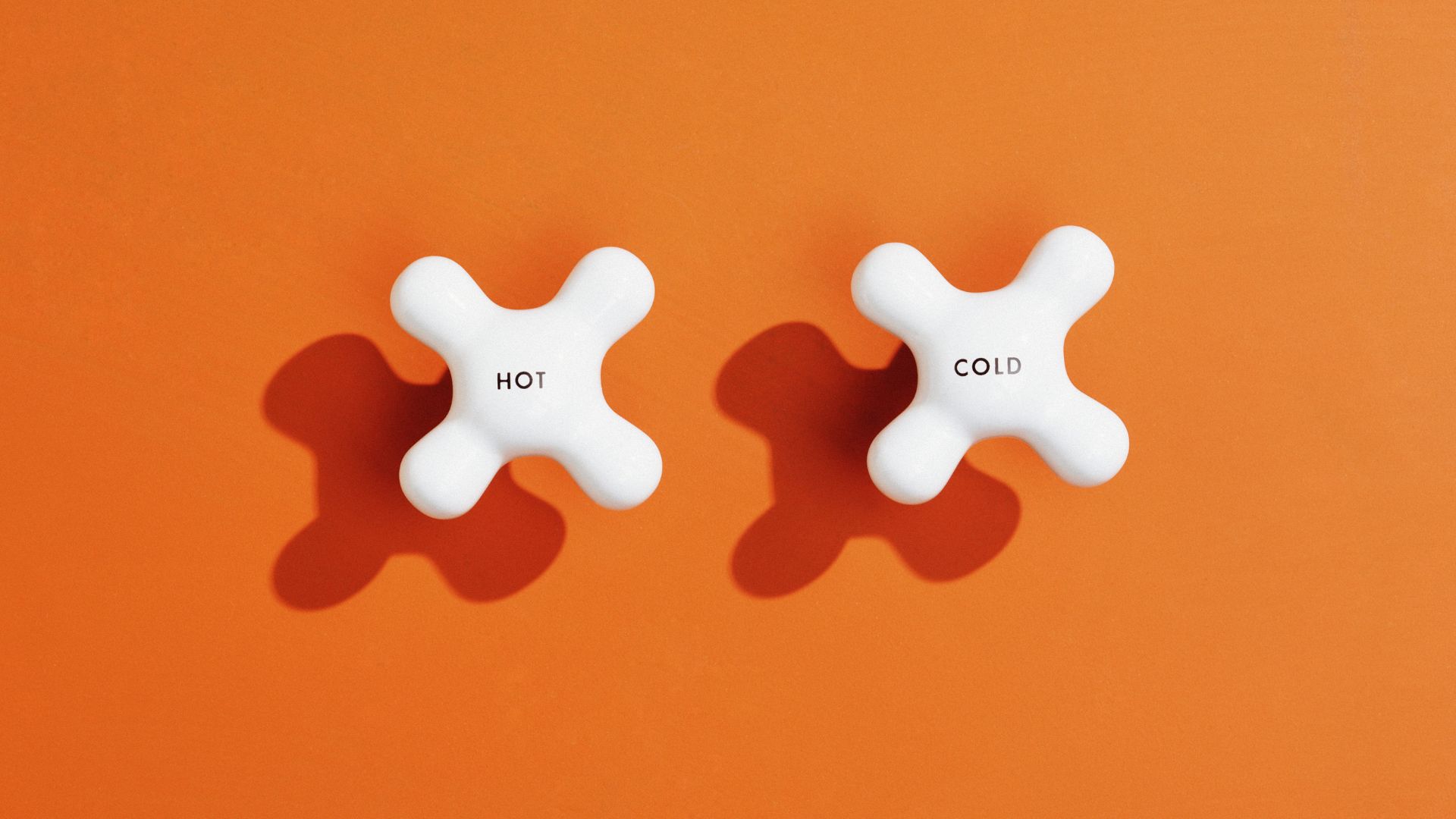ITV's Dr Sophie Bostock reveals why a cold shower is the 'worst' thing to cool down - and what to do instead
It's tempting to jump into a cold shower as the temperature rises, but sleep specialist Dr Sophie Bostock urged viewers on ITV's This Morning to avoid them


Sign up to our free daily email for the latest royal and entertainment news, interesting opinion, expert advice on styling and beauty trends, and no-nonsense guides to the health and wellness questions you want answered.
You are now subscribed
Your newsletter sign-up was successful
Want to add more newsletters?

Daily (Mon-Sun)
woman&home Daily
Get all the latest beauty, fashion, home, health and wellbeing advice and trends, plus all the latest celebrity news and more.

Monthly
woman&home Royal Report
Get all the latest news from the Palace, including in-depth analysis, the best in royal fashion, and upcoming events from our royal experts.

Monthly
woman&home Book Club
Foster your love of reading with our all-new online book club, filled with editor picks, author insights and much more.

Monthly
woman&home Cosmic Report
Astrologer Kirsty Gallagher explores key astrological transits and themes, meditations, practices and crystals to help navigate the weeks ahead.
When the temperature rises beyond what's comfortable, the first thing many of us do is dial down the temperature in the shower, step into the kids' paddling pool, or start drinking icy cold drinks.
This might feel good in the moment, but when trying to sleep in the heat, "getting into ice cold water" is actually completely counterproductive, warns Dr Bostock, aka The Sleep Scientist.
"Getting into ice-cold water gives your nervous system a bit of a shock, and your immediate reaction in cold water is for your blood vessels to constrict because it's trying to protect you," she says.
A post shared by This Morning (@thismorning)
A photo posted by on
"What you actually want is lots of blood flow going to your extremities, so research suggests that a lukewarm bath or shower actually helps with the blood flow to your skin, and that means when you get out of the shower, you're going to lose heat more easily."
To clarify, host Ben Shephard says: "So the more blood flow you have to the skin, the better your body is at controlling heat loss, so you will cool down quicker?"
"Absolutely," says the doctor.
"There is absolutely no doubt that heat makes things harder. We've all got an internal rhythm and body temperature that naturally peaks at about 5 or 6 pm, and we get coolest at about 2 or 3 am in the morning, so there's this natural dip at bedtime," she says.
Sign up to our free daily email for the latest royal and entertainment news, interesting opinion, expert advice on styling and beauty trends, and no-nonsense guides to the health and wellness questions you want answered.
"That cooling of our internal body temperature is like a cue for sleep, so if our ambient temperature around us is too hot, there isn't enough temperature gradient.
"We find it harder to lose heat, so it's harder to fall asleep, and when we finally get to sleep, we get less deep sleep which is really restorative. We also get less REM sleep, which is really good for our emotional balance, so we wake up feeling a bit tired and a bit irritable," she says.
To help us out this week, the doctor shared her other tips on sleeping in the heat:
- Find the right sleeping temperature: The "ideal" temperature for sleeping is "just a little bit cooler than room temperature," the doctor says. "It doesn't need to be much. Anything between 15 and 20 degrees." Check our guides on how to cool down a room without AC and how to keep a bedroom cool for tips.
- Create airflow through the house - particularly on the ground floor: "Heat rises, so if you do have a bedroom on the ground floor, that may be worth moving into," she says.
- Avoid the 'greenhouse effect': As soon as the sun rises, you have the conditions to create a very warm environment in your home, so the doctor recommends closing the blinds and other and cooling window hacks during the day.
- Stay well hydrated: The symptoms of dehydration can be easy to miss, as fellow ITV guest Dr Amir Khan revealed exclusively to woman&home. Dr Bostock says it's important to stay "well hydrated" to avoid these. "We lose heat through sweating, mainly so we need to be well hydrated," she says. "Drink frequently throughout the day."
- Avoid ice baths: The true "worst" thing to do in a heatwave is to get into an ice bath, the doctor also says. While some people like to have an ice bath every day, we've already covered some research that suggests these aren't all they're cracked up to be anyway.
- Be aware of other factors affecting your sleep: The doctor reminds us that those going through perimenopause and experiencing night sweats may find it harder to regulate their temperature, along with older people. Those with sleep apnea may find their symptoms get worse in hot weather, she says.

Grace Walsh is woman&home's Health Channel Editor, working across the areas of fitness, nutrition, sleep, mental health, relationships, and sex. She is also a qualified fitness instructor.
A digital journalist with over seven years experience as a writer and editor for UK publications, Grace has covered (almost) everything in the world of health and wellbeing with bylines in Cosmopolitan, Red, The i Paper, GoodtoKnow, and more.
You must confirm your public display name before commenting
Please logout and then login again, you will then be prompted to enter your display name.